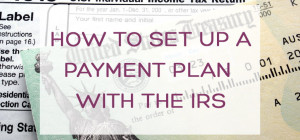“Hey!!! I pay taxes because that is my obligation towards my state. But… What to do of fraudulent? How to protect myself? Somebody, help!!!”
If the chatter is to be trusted, identity theft tops this year’s list of taxpayer concerns. And it is not all in your head: a 2015 Identity Fraud Study, which was released by Javelin Strategy and Research, found that identity thieves stole $15 billion from 12.8 million U.S. consumers in 2014, a new victim every three seconds.
Those statistics are bit scary but there is a good news to be found in the report: the numbers are actually less than they were previous year. The reason?! It is very likely the result of an increased awareness from consumers and increased protections in place from industry & government. This includes efforts like "Taxes… Security. Together." campaign of IRS (he Internal Revenue Services). The more you get to know how to protect yourself, the better chance you’ve to not be a victim.
Here are 8 tips which will protect you protect from identity theft & identity theft related tax fraud:
- Understand public wi-fi access. It really does mean public. When you are sitting inStarbucks SBUX -0.66% or in your local library, be bit more careful: your data may be worthy & vulnerable to interception. Do not connect to any unknown wi-fi connection (make sure that it is legitimate). If you’ve an alternative connection available (such as using cellular data), consider using that instead. If using public wi-fi is very necessary because of some urgent work, use Virtual Private Network (VPN). And save your really sensitive data - such as online banking - for later. It’s really best to avoid websites that could expose to potential cyber-thieves your financial information or passwords on public connections.
- Take care of your private documents. Don’t be careless with copies of tax returns, bank receipts, & credit card statement. File the copies you need & shred the ones that you do not need.
- Keep your email address current. We are an increasingly mobile society. It is rare that you will retire in the home that you start out in: chances are, you will switch addresses more than once. When you change it, make sure that you contact your tax authorities, credit reporting agencies and financial institutions so that your mail does not end up in some wrong hands. To change your address with IRS (this is actually easy), file a federal form 8822, & then change your email Address. You should file a change of address with the US Postal Service as well. You can do so online.
- Keep your eyes on bank & credit card statements. You do not have to be obsessive but do check your accounts from regularly to make sure that the recorded transactions are yours. Investigate & immediately report if there is any suspicious activity.
- Do not give away the store online. Company that does business over the web loves gathering your data. That data a is very useful for them as it helps them in taking decisions about marketing which means the more data they glean, more better is for them. When signing up for newsletters or making any purchase, provide only the information that the company needs: you do not have to give out all of your information. When you do opt in to offer your personal information, check the privacy policy of the site to find out how that information gonna be shared with other companies.
- Be stingy with Social Security Number of yours. These days, many companies ask for Social Security Number not because they require it but because they want to use it as identifying number. That is not the intended use. Before you give out Social Security Number, do determine whether that company really needs the information or not. If so, why. And if there is not a legitimate purpose, do not provide your Social Security Number when asked & do not submit it online.
- Monitor credit report. By law, you are entitled to one free copy of credit report of yours every year from each of the major credit bureaus ( Equifax EFX -0.17, TransUnion, & Experian): that is your total of 3 reports every year (you may be entitled to additional copies if you are the victim of identity theft). To get free copies you will have to visit www.AnnualCreditReport.com or just call 1.877.322.8228. Review credit report like you do your banking statement or credit card statement: check to make sure that the transactions and credit requests are those that you have approved.
- Do pay attention to fraud alerts. Many banks will alert you whenever there is a suspicious transaction on your account. It can be bit inconvenient if the transaction is legitimate but it is much better than having your card actually compromised & not knowing about it. Ask if your lender or bank has fraud alerts - & use them.
Even if you’re super diligent, the reality is that everybody is vulnerable to identity thefts. Keep in your mind that many of third parties have access to your data, including health care providers, trusted advisors, merchant,& the government. If your data is compromised, take few deep breathes & then make an effort to mitigate any damage to your accounts or credits, including contact your financial institution if you have detected fraud - you may need to switch an account, get a new card or even get a credit freeze (rules may vary by state). If you want to file a complaint with the FTC, visit identitytheft.gov . If identity theft is related to taxes or filing income tax services, respond ASAP to any IRS notice & complete form 14039, Identity Theft Affidavit, if needed.
by http://www.anaheimtax.com/







